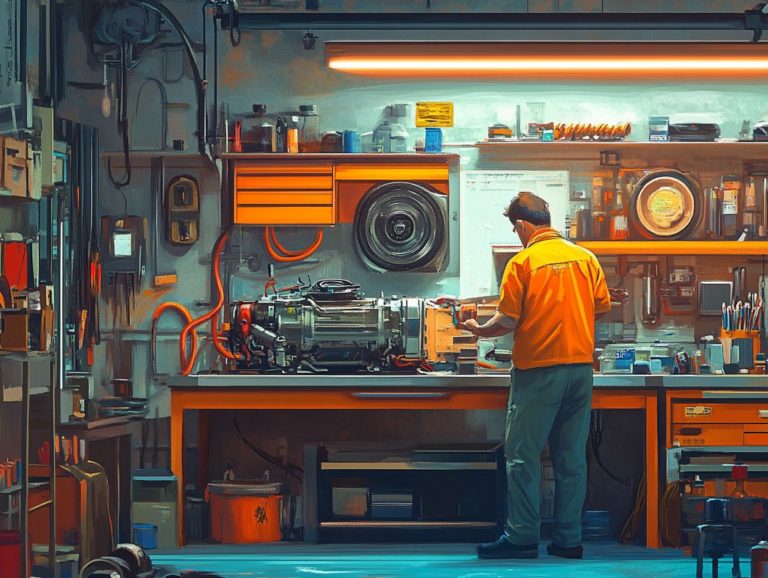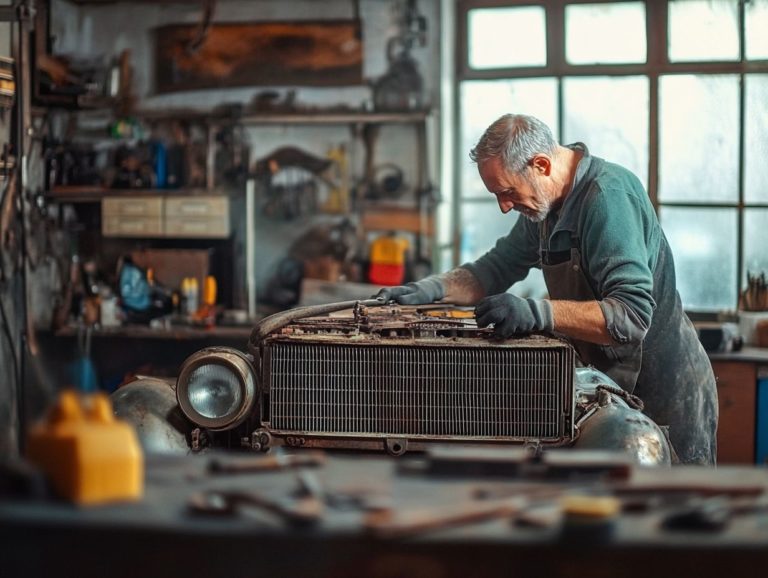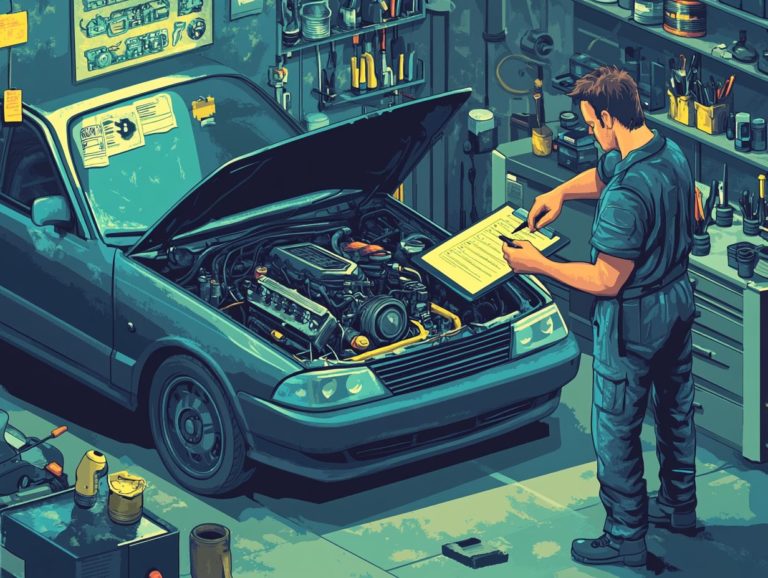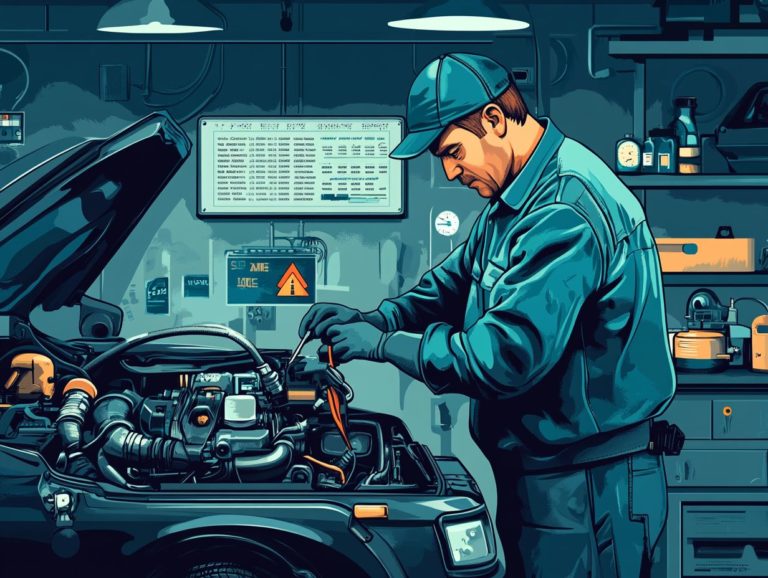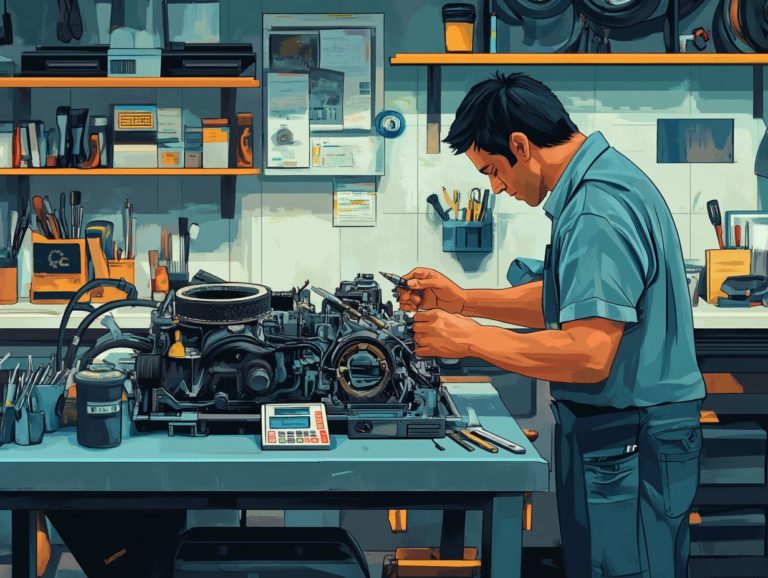How to Prevent Common Brake Repairs
Understanding your braking system is essential for both safe driving and the long-term performance of your vehicle. This article delves into the key components of your brakes and their functions. It also sheds light on common repairs such as brake pad and rotor replacements. Finally, it provides valuable tips to help you avoid these issues.
The significance of regular maintenance and sound driving habits will also be addressed. You will also learn how to choose high-quality brake parts for safety and reliability.
Get ready to boost your vehicle care skills!
Contents
- Key Takeaways:
- Understanding Your Braking System
- Common Brake Repairs and How to Avoid Them
- Maintaining Your Braking System
- Choosing Quality Brake Parts
- Frequently Asked Questions
- What are some common brake repairs that can be prevented?
- How often should I have my brakes inspected to prevent common repairs?
- How can I prevent brake pad replacement?
- What can cause brake fluid leaks and how can I prevent them?
- How can I avoid rotor damage and the need for rotor replacement?
- What are some signs that my brakes may need attention?
Key Takeaways:
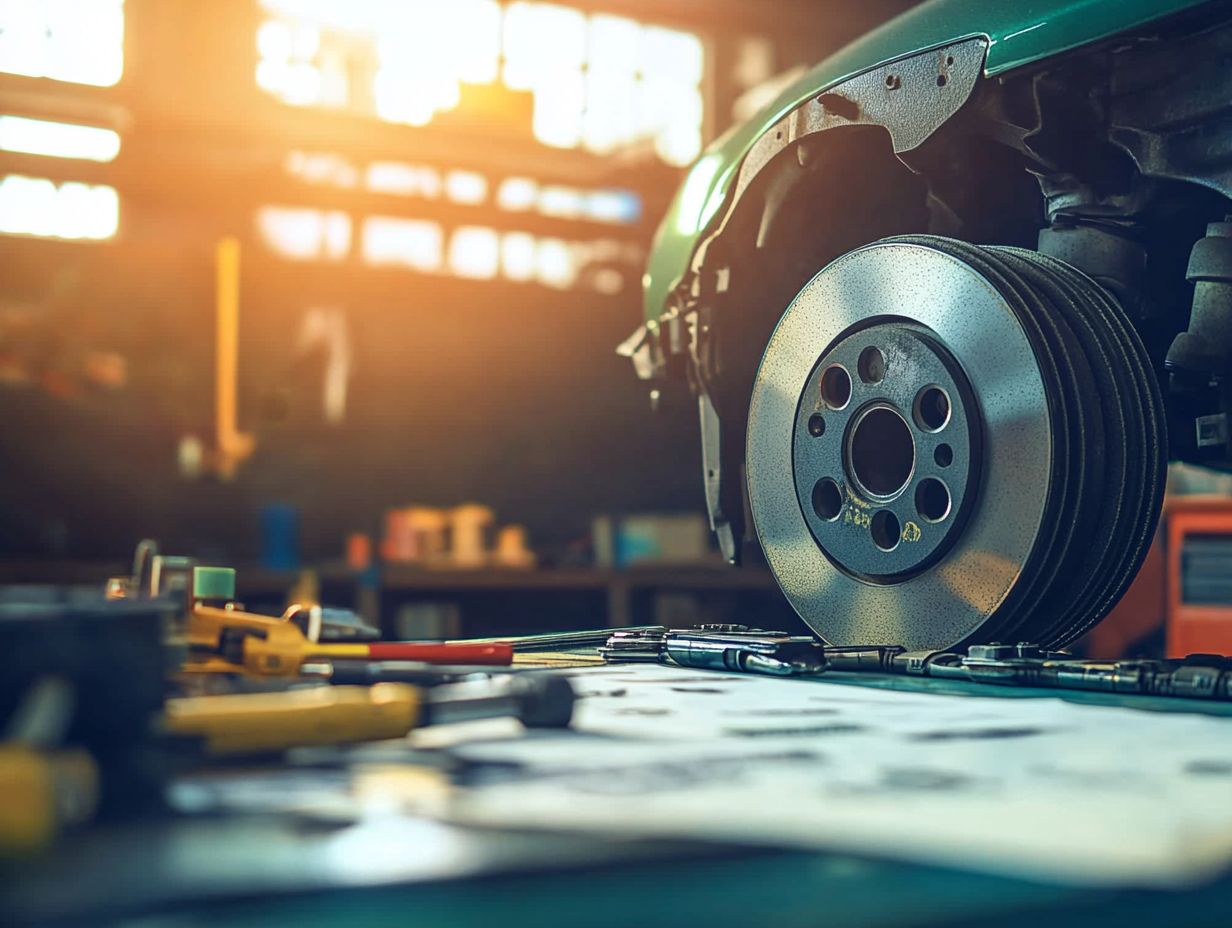
- Regularly inspect and maintain your braking system to prevent common brake repairs.
- Practice proper driving habits, such as avoiding sudden stops and using the brakes evenly, to extend the lifespan of your brake components.
- Choose quality brake parts and consider factors such as durability and compatibility to ensure safe and reliable brakes for your vehicle.
Understanding Your Braking System
Understanding your braking system is crucial for ensuring both your safety and your vehicle’s optimal performance. The brake system consists of several key components that collaborate seamlessly to halt your vehicle, including brake pads, brake rotors, and brake fluid.
By familiarizing yourself with how these elements function, you can spot potential issues early. This helps avoid expensive repairs and elevates your driving experience.
Whether you decide to consult an automotive expert or take on some brake maintenance yourself, having a clear understanding of your braking system is essential for safe and confident driving.
Components and Their Functions
The brake system consists of several essential components, each playing a vital role in ensuring your vehicle’s safety and performance. Key components include brake pads, brake rotors, and brake fluid.
Understanding how these elements interact is crucial for effective brake maintenance. For instance, brake pads gradually wear down due to the friction generated during operation. Their effectiveness is integral to achieving smooth braking.
The quality of brake fluid is just as significant. Brake fluid serves as a hydraulic fluid that transfers force from the master cylinder to the brake calipers. It must remain free of moisture to maintain its boiling point and prevent a condition where gas bubbles form in the brake fluid, reducing effectiveness.
The master cylinder converts the force of your brake pedal into hydraulic pressure. Meanwhile, the brake calipers clamp down on the rotors to bring your vehicle to a stop. Regular checks can help you avoid warning lights that signal potential issues, ensuring that your braking system remains in optimal condition.
Common Brake Repairs and How to Avoid Them
You can often sidestep common brake repairs by prioritizing regular inspections and timely maintenance. By recognizing common brake issues early and ensuring that your brake pads, rotors, and other components are kept in optimal condition, you effectively prevent potential issues from arising in the future.
Brake Pad Replacement
Brake pad replacement is often one of the most common brake repairs you ll encounter, especially if your vehicle has experienced worn brake pads due to regular use.
You may notice specific signs that signal it s time for some servicing. For instance, if you feel vibrations during braking, hear a distinct grinding noise, or see warning lights lighting up your dashboard, these are all red flags you shouldn’t ignore.
When these symptoms pop up, seeking professional help becomes crucial. Choosing a qualified mechanic can significantly influence the outcome of the repair. Look for those with positive reviews and solid reputations in your area.
Opting for quality replacement parts is equally essential, as they can enhance both safety and performance. This will ensure a smoother driving experience for you.
Don’t wait too long! Start inspecting your brakes today and drive with confidence!
Brake Rotor Replacement
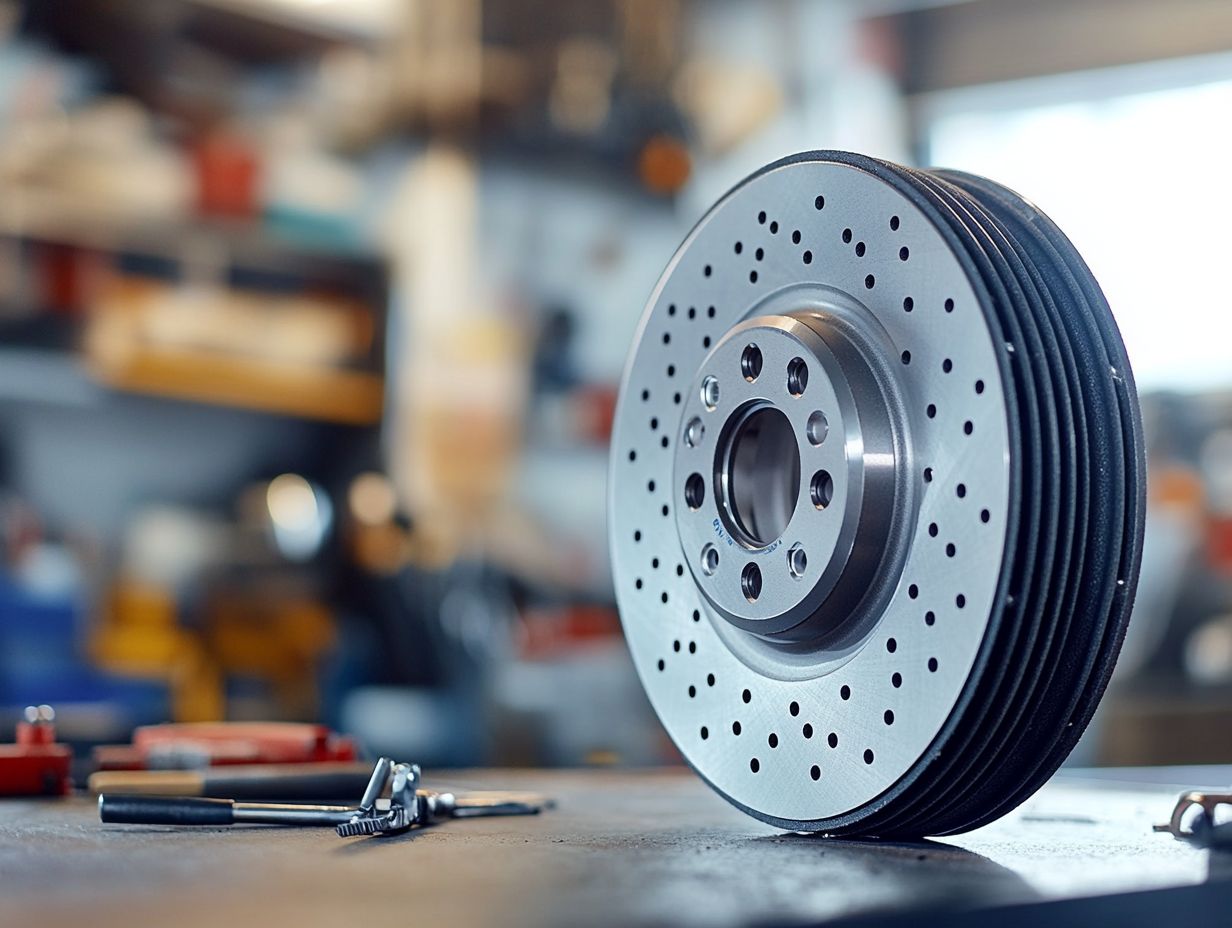
Brake rotor replacement is essential when you notice vibrations or pulsations while braking. These signals indicate your rotors may be warped or damaged.
This condition can significantly impact your braking performance. It may lead to longer stopping distances or inconsistent engagement.
Replace rotors on time to boost your braking effectiveness. Proactive monitoring of rotor health is crucial; neglecting this can create hazardous driving conditions and inflate repair costs!
Brake Fluid Flush
A brake fluid flush is a vital maintenance task for your brake system and vehicle safety. Over time, brake fluid can get contaminated with moisture and debris.
Moisture lowers the boiling point and increases the risk of brake failure during high temperatures. Contaminated fluid can cause corrosion in the brake parts, complicating repairs.
Always consult a car repair expert for advice on flushing and replacing your brake fluid. Choose a brake fluid that meets or exceeds manufacturer standards for reliability.
Maintaining Your Braking System
Maintaining your braking system is essential for your vehicle’s safety. It requires regular inspections and timely repairs.
Prioritizing these practices keeps your brakes in optimal condition, giving you confidence on the road.
Regular Inspections and Maintenance
Regular brake inspections are crucial to identify issues before they become expensive repairs. Schedule inspections at least once a year or every 12,000 miles.
During checks, listen for unusual noises like squeaking or grinding. Pay attention to vibrations while braking, as they may indicate issues.
Proper Driving Habits
Adopting good driving habits extends your brake system’s lifespan and boosts vehicle safety. Smooth acceleration and gradual braking minimize stress on your brake parts.
Erratic driving with hard stops can overheat and damage your brakes, leading to costly repairs. Watch for signs like squeaking noises, a spongy brake pedal, or vibrations while stopping.
Choosing Quality Brake Parts
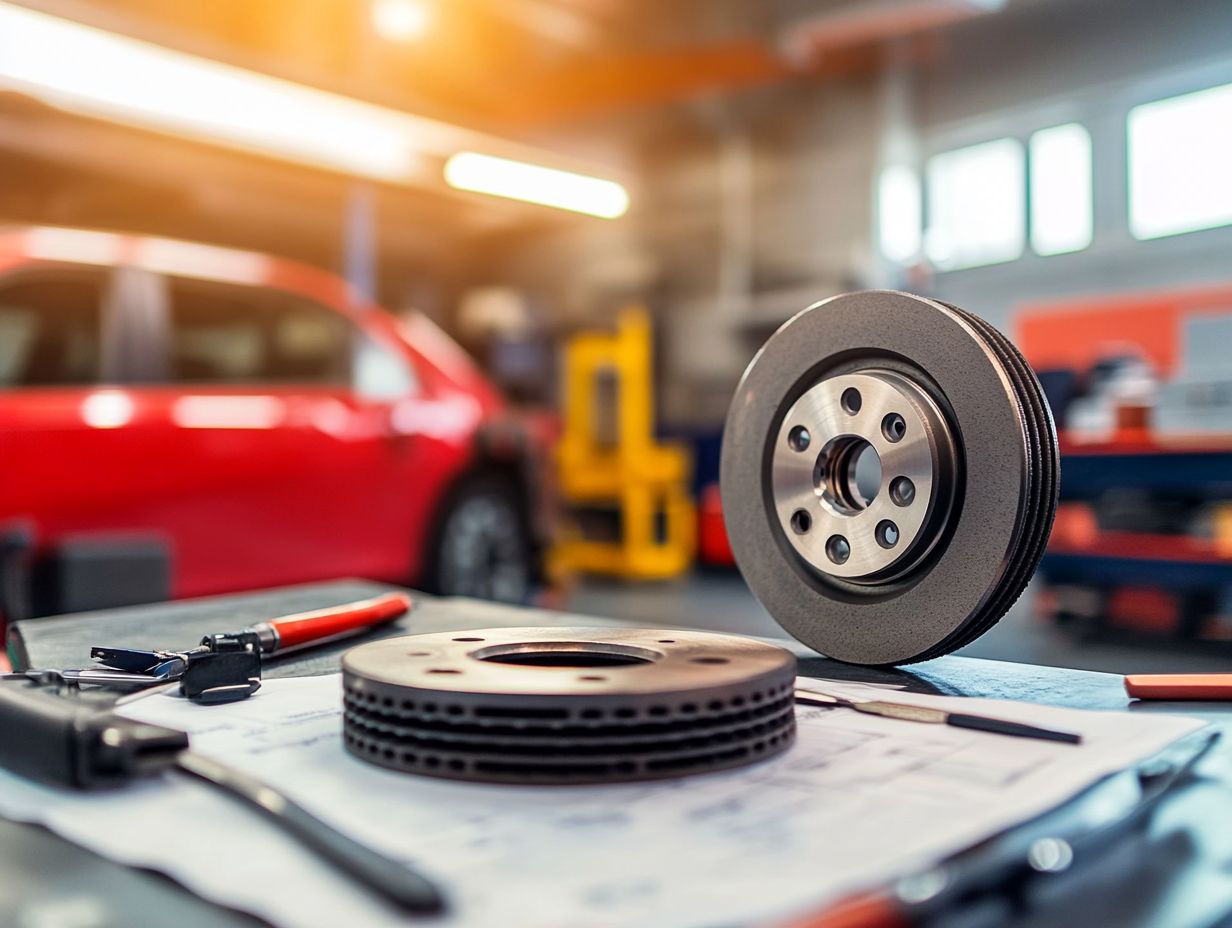
Selecting high-quality brake parts is crucial for the reliability and safety of your braking system. Consider various factors when choosing brake pads and rotors for optimal performance.
Factors to Consider
When selecting brake pads and rotors, consider key factors like material composition, brand reliability, and compatibility with your vehicle model. This ensures optimal performance.
Different materials, such as ceramic and metallic, significantly influence the effectiveness and durability of your braking system. For daily commuters, ceramic brake pads are a fantastic choice due to their low dust production and quiet operation.
In contrast, if you drive a performance-oriented vehicle, metallic brake pads might be better, offering superior heat dissipation and enhanced performance.
Ultimately, the right choice depends on your driving habits and conditions. Consulting with a professional mechanic is essential. They can assess your vehicle’s specific needs and provide personalized recommendations to enhance both performance and longevity.
Ensuring Safe and Reliable Brakes
Ensuring safe and reliable brakes is crucial for your vehicle s safety. It requires your commitment to regular maintenance and prompt replacement services.
Proactively addressing brake maintenance enhances your vehicle’s performance and significantly reduces the risk of accidents. Regular inspections by qualified professionals can uncover wear and tear on critical components that might otherwise go unnoticed.
Using high-quality parts during replacements guarantees better durability and responsiveness. Emphasizing these practices ensures a smoother driving experience and provides peace of mind, knowing your brakes are performing at their best.
Prioritizing brake safety contributes to overall road safety, benefiting you and all road users.
Frequently Asked Questions
What are some common brake repairs that can be prevented?
Common brake repairs that can be prevented include brake pad replacement, brake fluid leaks, and rotor damage. To learn more about these issues and how to stay prepared for common car repairs, it’s beneficial to stay informed.
How often should I have my brakes inspected to prevent common repairs?
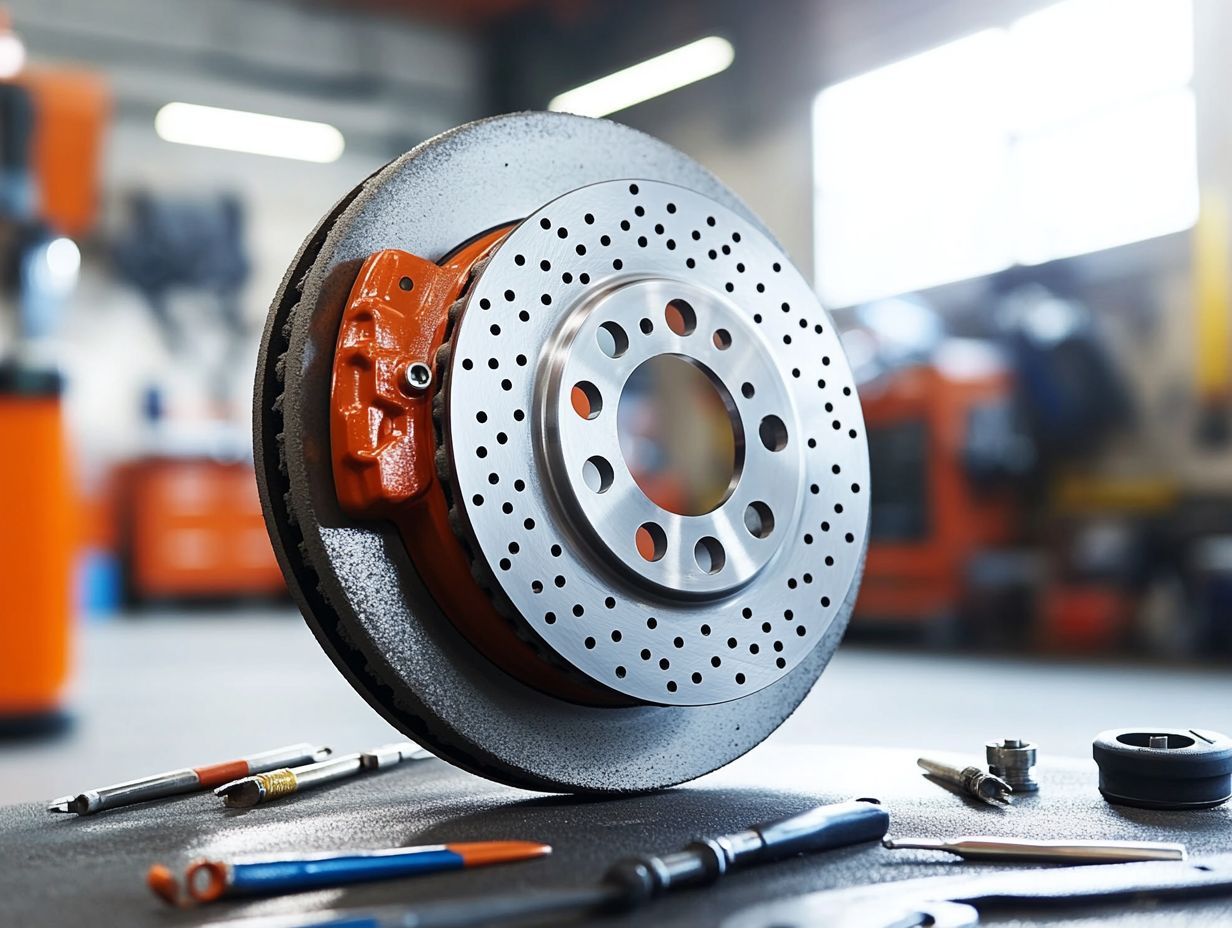
It is recommended to inspect your brakes at least once a year or every 12,000 miles to catch potential issues before they become major repairs.
How can I prevent brake pad replacement?
To prevent brake pad replacement, regularly check your brake pads for wear and replace them before they become too thin. Practice smooth braking to extend the life of your pads!
What can cause brake fluid leaks and how can I prevent them?
Brake fluid leaks can result from worn-out seals, damaged brake lines, or loose fittings. Have your brake system inspected regularly and address any leaks immediately.
How can I avoid rotor damage and the need for rotor replacement?
To prevent rotor damage, replace your brake pads before they become too thin. Avoid riding your brakes for prolonged periods, as this can cause overheating and warping of the rotors.
What are some signs that my brakes may need attention?
Signs that your brakes may need attention include squeaking or grinding noises, a vibrating brake pedal, or a longer stopping distance. If you notice any of these signs, have your brakes inspected as soon as possible to prevent potential issues.


